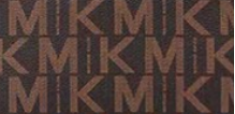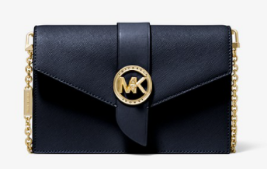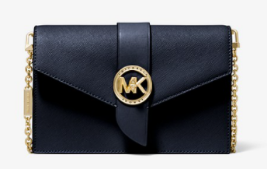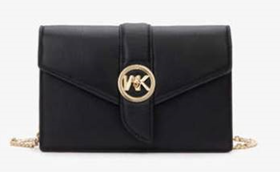Did not receive verification mail? Please confirm whether the mailbox is correct or not Re send mail

IPR Daily
- 2024-07-22 15:45:47
Court Awards Maximum Compensation of CNY 5 million for Infringement on MICHAEL KORS' Trademark Rights and Trade Dress
Source: IPR Daily
Author:Chang Tsi & Partners
Simon Tsi & Michael Fu
MICHAEL KORS bags are commonly seen on bustling city streets, consistently attracting fashion enthusiasts. This luxury brand, named after its designer, is skillfully managed by Michael Kors (Switzerland) International GmbH, leading a trend of enduring luxury.
Yuantai Company, MuMuGuo Company, and Huazheda Company are three affiliated companies that have been engaged in the production and sale of bag products for many years. In 2018, Yuantai Company registered the trademarks "MAITANE KALOS" and " " (MKO) on the goods in Class 18. Upon investigation, it was found that these three companies used the aforementioned trademarks and the unregistered MK mark to produce and sell infringing bags. These bags not only utilized trademarks that are highly similar to those of MICHAEL KORS or
" (MKO) on the goods in Class 18. Upon investigation, it was found that these three companies used the aforementioned trademarks and the unregistered MK mark to produce and sell infringing bags. These bags not only utilized trademarks that are highly similar to those of MICHAEL KORS or  in both text and graphics, but also employed the MIK pattern in their decorations, and the designs are nearly identical to those of the MICHAEL KORS.
in both text and graphics, but also employed the MIK pattern in their decorations, and the designs are nearly identical to those of the MICHAEL KORS.
The marks, decorations, and designs used by MICHAEL KORS | The marks, decorations, and designs used by Yuantai Company, MuMuGuo Company and Huazheda Company |
| |
|  |
  |  |
Yuantai Company, MuMuGuo Company, and Huazheda Company have extensively promoted and achieved significant sales of their infringing bags. On their official websites and various platform accounts, these three companies have advertised with claims such as "MAITANE KALOS is a fast fashion, affordable luxury brand originating from the UK, commonly known as 'little MK'." In their online stores, the companies sell the infringing bags at prices ranging from CNY 200 to 4,000. Simultaneously, they have opened specialty counters and pop-up stores in offline malls in cities such as Beijing, Yichang, and Yinchuan, using short-term, low-price promotions to attract a large number of consumers. As the infringing bags imitate the marks, decorations and designs of MICHAEL KORS brand, many consumers, upon purchasing, have expressed feeling deceived, discovering only when they returned home that they had bought counterfeit MK bags.
Upon discovering the aforementioned activities, the owner of the MICHAEL KORS brand, commissioned Chang Tsi & Partners to send a cease-and-desist letter to Yuantai Company. The letter detailed the infringement actions and their consequences, demanding an immediate cessation of all infringing activities. After unsuccessful negotiations following the cease-and-desist letter, MICHAEL KORS subsequently appointed attorneys Simon Tsi and Michael Fu from Chang Tsi & Partners to further pursue the case. They filed a civil lawsuit against Yuantai Company, MuMuGuo Company, and Huazheda Company for trademark infringement and unfair competition at the Haidian District People’s Court in Beijing. The lawsuit demands that the three companies cease all infringing activities and compensate for economic losses and reasonable expenses of rights protection, totaling CNY 5 million.
After deliberation, the Haidian District People's Court in Beijing issued a first instance judgment stating:
First, the disputed trademark "MAITANE KALOS" and three other graphic marks are found to be similar to "MICHAEL KORS" and its graphic trademarks. The goods specified for use under the disputed trademarks are categorized under Class 18, including bags, which are identical to the goods produced by MICHAEL KORS. Considering the good reputation of MICHAEL KORS, there is a high likelihood that the public could be misled about the origin of the goods or believe that there exists a licensing use, affiliate relationship, or other specific connections between MICHAEL KORS and the defendants. Therefore, the actions of the defendants infringe upon the trademark rights of MICHAEL KORS.
Second, the Taobao store describes "MAITANE KALOS as a fast-fashion, affordable luxury brand originating from the UK, commonly known as 'little mk'." The court determined that the use of "mk" in such promotional activities constitutes trademark use and infringes upon the trademark rights. Since the court has already applied the Trademark Law to regulate this matter, it is unnecessary to further apply the Anti-Unfair Competition Law to comment on it.
Third, MICHAEL KORS has extensively and continuously used the decorative elements on its bags, and the monogram pattern has established a stable association with its products, qualifying as a decoration with significant influence. The use of similar decorations on the disputed bags results in almost no visual difference, and given the general level of attention of the relevant public, it is highly likely to cause confusion. Therefore, the court has determined that the use of the decoration constitutes unfair competition.
Fourth, regarding the specific amount of economic compensation, considering the long-term use and promotion of the trademark and decorations by MICHAEL KORS, which have extremely high renown and influence in the category of bag products, as well as the subjective malice of the three defendants in registering similar marks despite knowing this, and their implementation of large-scale infringement through multiple online and offline stores, coupled with their refusal to provide production and sales data they possess, and the obstruction of evidence, the court deemed the CNY 5 million in damages claimed by MICHAEL KORS to be reasonable and supported this claim.
This case is a typical intellectual property litigation involving trademark infringement and unfair competition. The court not only fully supported the plaintiff's claims but also awarded the maximum compensation of CNY 5 million to the plaintiff, which is a substantial amount. The fair judgment in this case demonstrates the court's commitment to equally protect both domestic and foreign enterprises, which is beneficial for maintaining the order of trademark registration management and a market environment of fair competition, thereby creating a friendly business environment. Moreover, the victory in this case undoubtedly gives brand owners confidence to continuously monitor and combat infringing products, encouraging them to actively protect their rights and reinforce their investment in China.
Source: IPR Daily
Author: Chang Tsi & Partners
Simon Tsi & Michael Fu
- I also said the two sentence
- Also you can enter 140words
 TOP IPR U.S. Lawyers 10 & Firms 10 Selection Officially Launched by IPR Daily
TOP IPR U.S. Lawyers 10 & Firms 10 Selection Officially Launched by IPR Daily WIPO Global Innovation Index 2025: China Enters Top 10
WIPO Global Innovation Index 2025: China Enters Top 10 Singapore ranks 5th in the 2025 Global Innovation Index; climbed two spots in Innovation Outputs
Singapore ranks 5th in the 2025 Global Innovation Index; climbed two spots in Innovation Outputs Federal Circuit lacks jurisdiction over award that doesn’t raise issue of patent law
Federal Circuit lacks jurisdiction over award that doesn’t raise issue of patent law







